Call 604-986-9777
Order for pickup or delivery Mon-Fri at:
[email protected]
Want to speak to a person? Call our WCS Depot at:
604-987-1493 ext. 0
Call us Now
Visit our WCS Depot:
1493 Dominion Street, North Vancouver, British Columbia, Canada
As a waste collection service provider operating solely out of Greater Vancouver B.C., we are connecting our local community to organic compost made from the very food & yard waste we collect at curbside from our residential and commercial clients in the Lower Mainland of British Columbia.
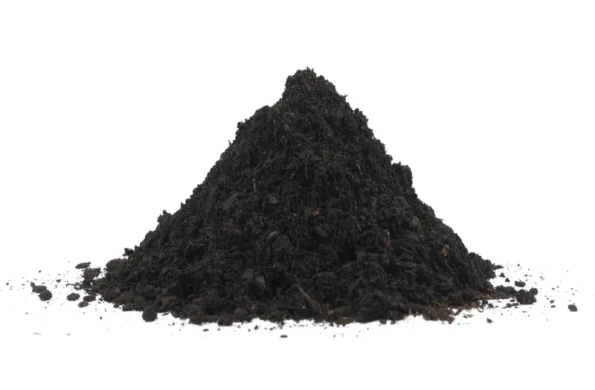
Our product is a top-of-the-line soil amender, and checks all boxes for gardeners and growers, considered “the good stuff” by those who can spot the difference between quality compost and ‘simply average’. We believe we have something special, and that is why we only offer a premium Class A organic compost that meets OMRI-certification standards (View OMRI Certification here). The soil test results speak for themselves! Scroll to the bottom of the page to view test results & a full chemical analysis of what is found in our product.
Filtered twice with quarter inch fine screens means there are virtually no sticks, twigs, or debris leaving you with a super fine, high-quality, nutrient-rich (and of course pesticide-free), highly-concentrated pure organic compost, what we gardeners refer to as “Black Gold.” Don’t believe us? Come see for yourself!
Our compost is full of beneficial nutrients and microbes, ideal for soil amending. Till into existing soil (1:4 ratio or 1:3 ratio) to improve structural and biological diversity, which increases nutrient pathways to your plants, improving water retention, and producing healthier plants whether in landscaping, flower beds or improving vegetable yields.
 Photos showing vegetable garden yield boosted with Class A Compost by our friends at Net Zero Waste in Eastgate, B.C.
Photos showing vegetable garden yield boosted with Class A Compost by our friends at Net Zero Waste in Eastgate, B.C.
Our compost is made by our friends at Net Zero Waste, Eastgate B.C.. We bring the organic waste that our WCS trucks collect across the Metro Vancouver area to our own WCS facility in North Vancouver, where we collect the volume, inspect, and hand pick out the items that don’t belong. We then load up and drive the materials up to Eastgate B.C. for the composting process to commence. After a 60-day composting process (more on this below) and the product has passed rigorous testing and is deemed matured and ready, we bring it back to our WCS Depot in North Vancouver, where folks in our community can easily access and purchase high-quality compost made from their very food and yard waste – bringing your food waste full circle!
Visit our WCS Depot at 1493 Dominion Street, North Vancouver, B.C. and check in at the office.
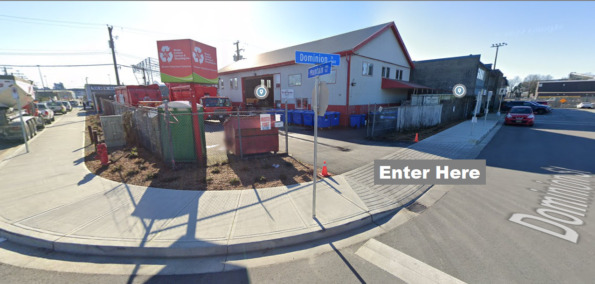
BULK / LOOSE:
$90 / PER 750 kgs / 1650 lbs (1.5 YARDS)
$60 / PER 500 kgs / 1100 lbs (1 YARD)
$40 / PER 250 kgs / 550 lbs (HALF YARD)
(Ideal if you are a landscaper bringing this directly to a client, require a large volume, use this year-round, or have a trailer or tarped pickup truck this – Book an appointment Mon-Fri as wait times may vary depending on loader operator availability.)
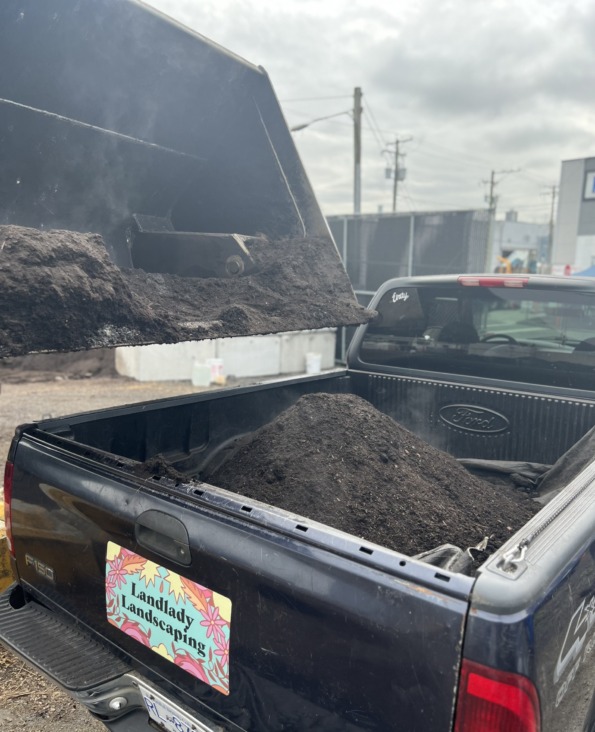
POLYWOVEN SUPERSACK (1.5 YARD BAG):
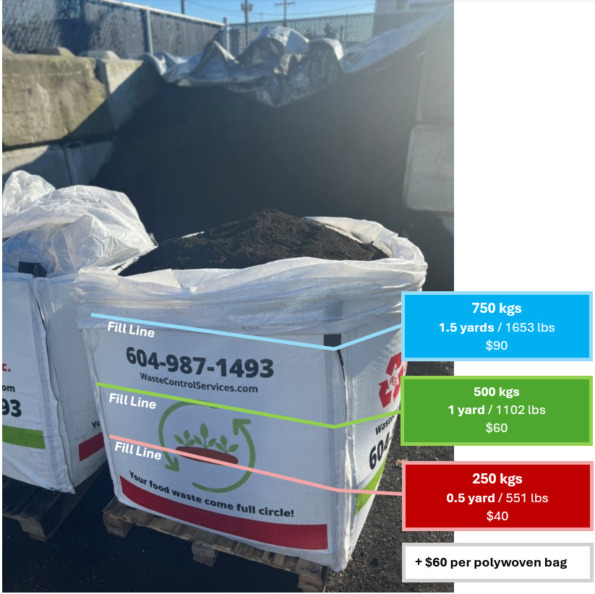
(Ideal for year-round top-ups in your garden. We will load this into your truck on a wood pallet. If you’re in no rush, limited delivery options available upon request.)
FILL-IT-YOURSELF (e.g. shovels):
$20 / PER GARBAGE CAN (UP TO 121 L)
$8 / PER BUCKET (UP TO 5 GALLONS / 20 L)
(Ideal if you only require a small amount for a backyard garden. Bring your own garbage cans up to 121 L; we have a limited supply of shovels and buckets).
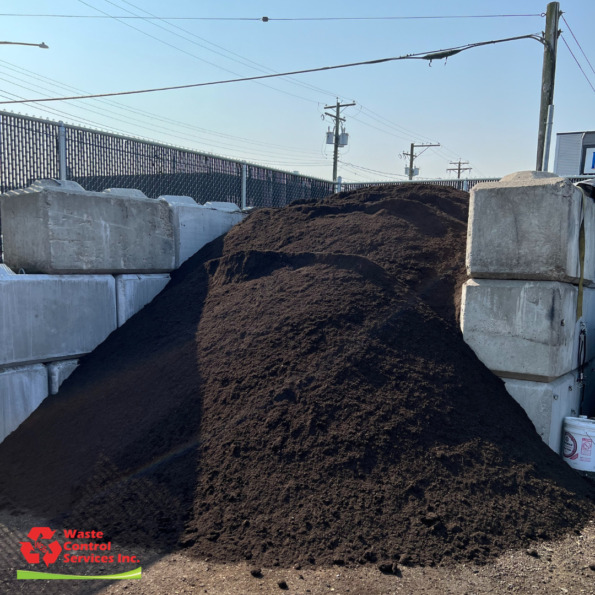
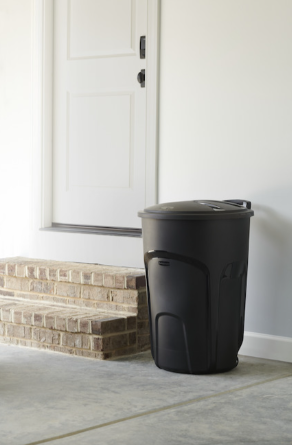
Example of one type of garbage can you can bring to fill
(Photo by Rona / Rubbermaid)
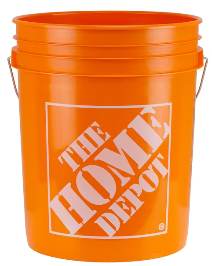
Example of a bucket you can bring to fill
(Photo by Home Depot)
** We may have a limited supply of recycled buckets for those who don’t have one to bring – just let us know ahead of time so we can check our supply – bring back for re-use**
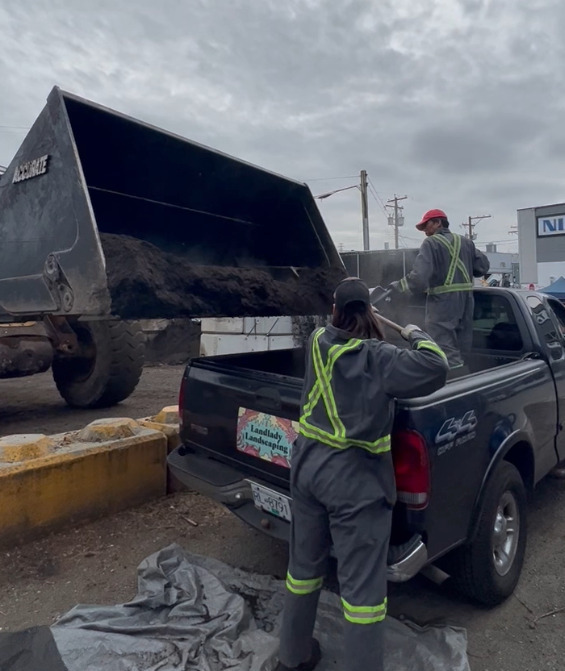
Example of how we would use our large loader to load 1 yard of loose soil amender into the bed of your pickup truck. We advise lining your truck with a large tarp for easy clean up afterwards. Loader / loose compost only available during weekday open hours.
(Customer: Landlady Landscaping)
We are pleased to share we now offer various delivery options! Delivery pricing starts at $119 + product cost (may vary depending on delivery location & method of delivery preferred).
Whether you need the soil amender delivered loose (1-12 yds at a time) to your landscaping site or home, or contained in a 1.5 yd super sack for year-round mixing, we’ve got options suit your needs!
Place an order and request delivery at [email protected].
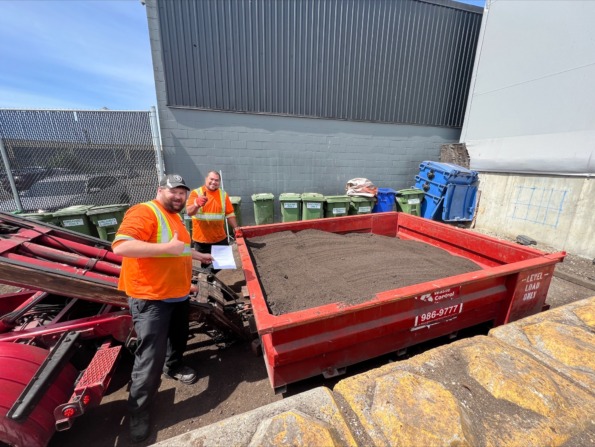
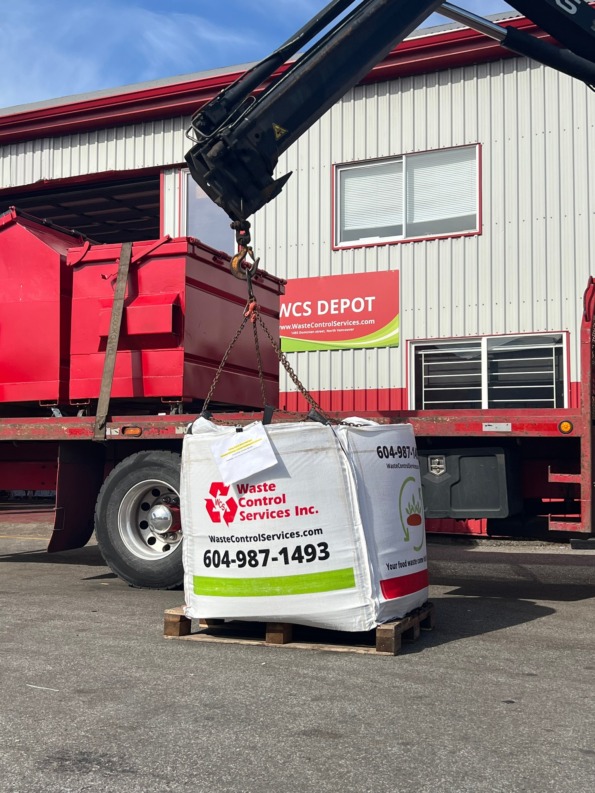
Compost is a sustainable, recycled, nutrient-rich soil amendment, resulting from the controlled decomposition of organic material.
If not for composting, where would organic waste end up? That’s right, the landfill.
The same natural processes utilized in your backyard compost pile are also used by composting facilities like Net Zero Waste Eastgate. It is just done on a bigger scale and they use the Gore Cover System™ technology to aid the process and control odour and vectors.
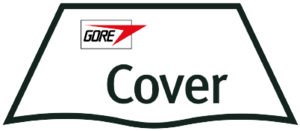
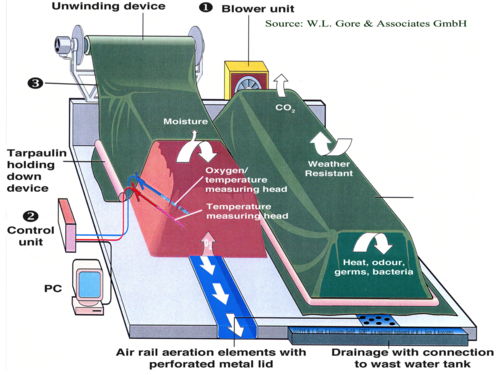
Pictorial of the Gore Cover System Technology
Note* Net Zero Waste Eastgate does not use biosolids, sewage sludge or accept manures or any other feedstocks containing fecal matter. The compost is regularly tested to ensure it is free of fecal coliforms and salmonella and ideally suited for food production and farming.
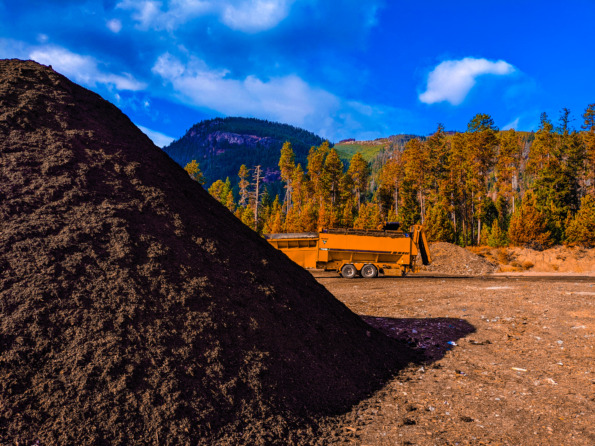
(Photo by Amanda Cowper, Net Zero Waste, Eastgate B.C.)
The organic waste is combined with clean ground or chipped wood residuals and water to ensure adequate porosity and promote a quick, efficient start to the composting process. From there, the rising temperature of the pile is tracked, indicating that the composting process has begun. Temperatures above 55°C for more than 3 consecutive days will ensure that any pathogens or weed seeds are eliminated from the compost. Heat and moisture are retained under the pile which also reduces odour by up to 97%. At the end of the process the compost is passed through two 1/4” trommel screens to remove any organic matter or contamination that has not broken down. The compost is then stored and cured prior to selling and is regularly tested to ensure that a Class A end-product is achieved.
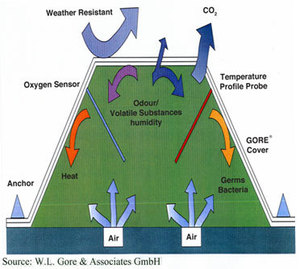
Compost maturity refers to the presence or absence of phytotoxic compounds in the compost. Phytotoxic compounds, such as ammonia or ammonium, can have negative impacts on plant germination and growth. Young or immature compost can contain high levels of these compounds so we test respiration to ensure stable compost prior to sale.
As compost matures, the phytotoxic compounds decrease, but the nitrogen also moves into a slow-release form, taking years to become fully available. Nitrogen is often the nutrient that is required in the largest amount by plants and is most often deficient in the soil. So, while slightly immature compost may be a better source of nitrogen, it simply requires a little more management than fully matured compost.
Salinity refers to the level of sodium contained within the compost and soil. Compost made from organic material, like our Class A Compost, can be high in salinity. Sodium is very mobile in the soil and is moved by irrigation. For this reason, compost needs to be blended with sand, perlite or other amendments to make a potting soil or worked into existing soils as a top dress.
With new planting, we recommend that our compost be applied 2-4 weeks before seeding or planting to allow the phytotoxic compounds to dissipate and excess salinity to dissipate.
Annually in small amounts to boost organic matter and contribute to soil fertility, or less frequently but at higher rates to meet specific crop nutrient requirements.
Our Net Zero Waste Eastgate Class A Compost is very nutrient rich, with N around 2%. As a result the application amounts and frequency will be less for our compost than other yard waste based amendments. 10 tonnes / acre is our recommended application rate.
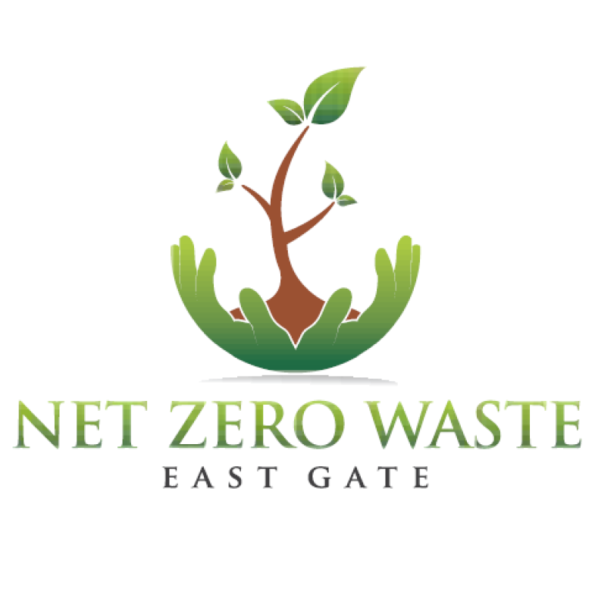
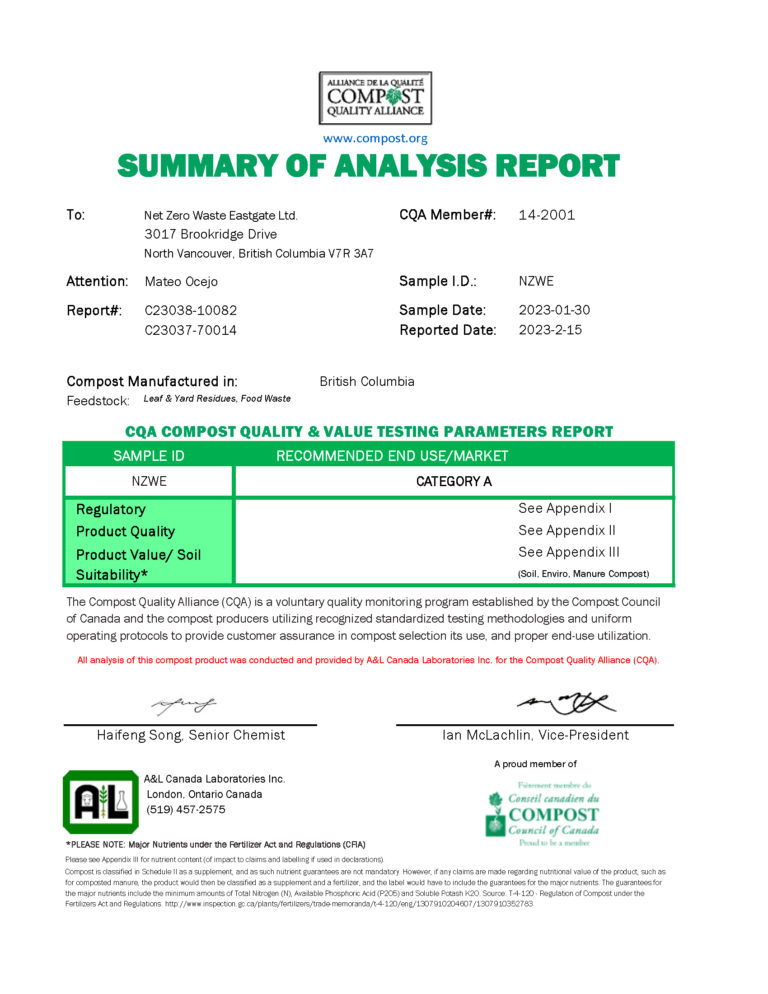
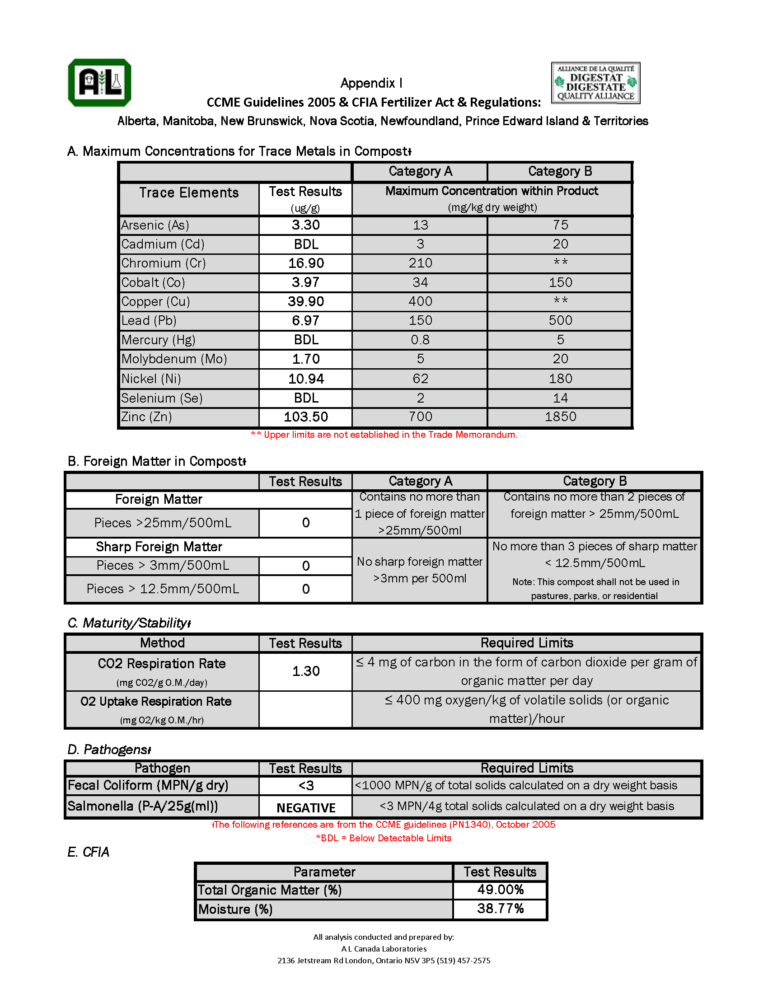
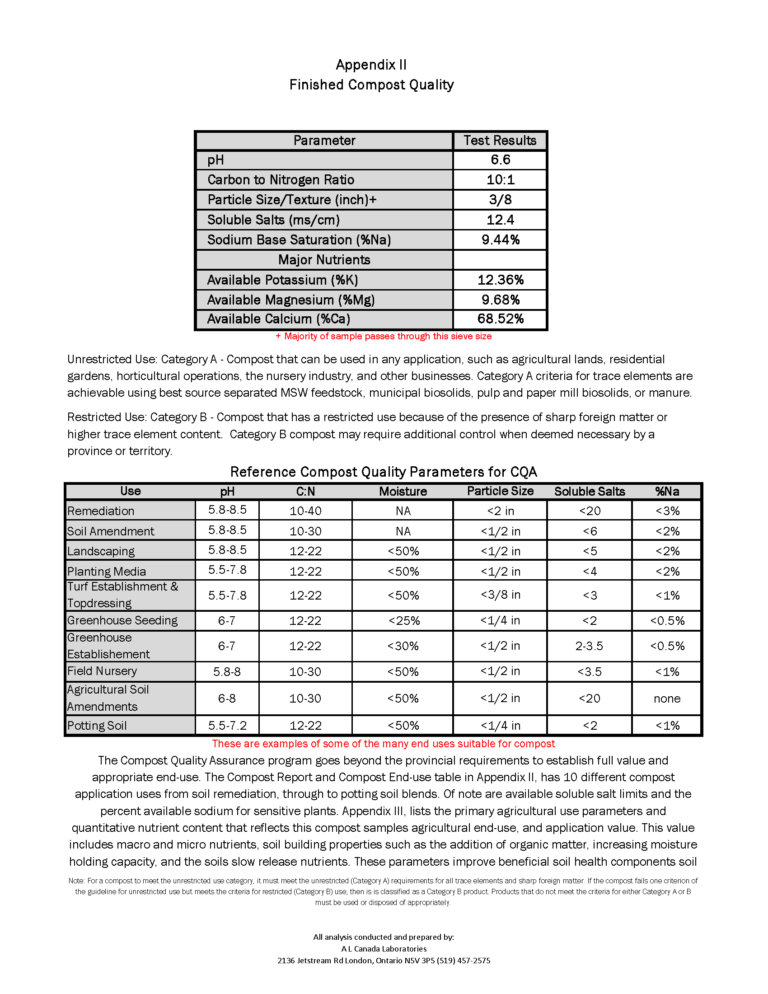
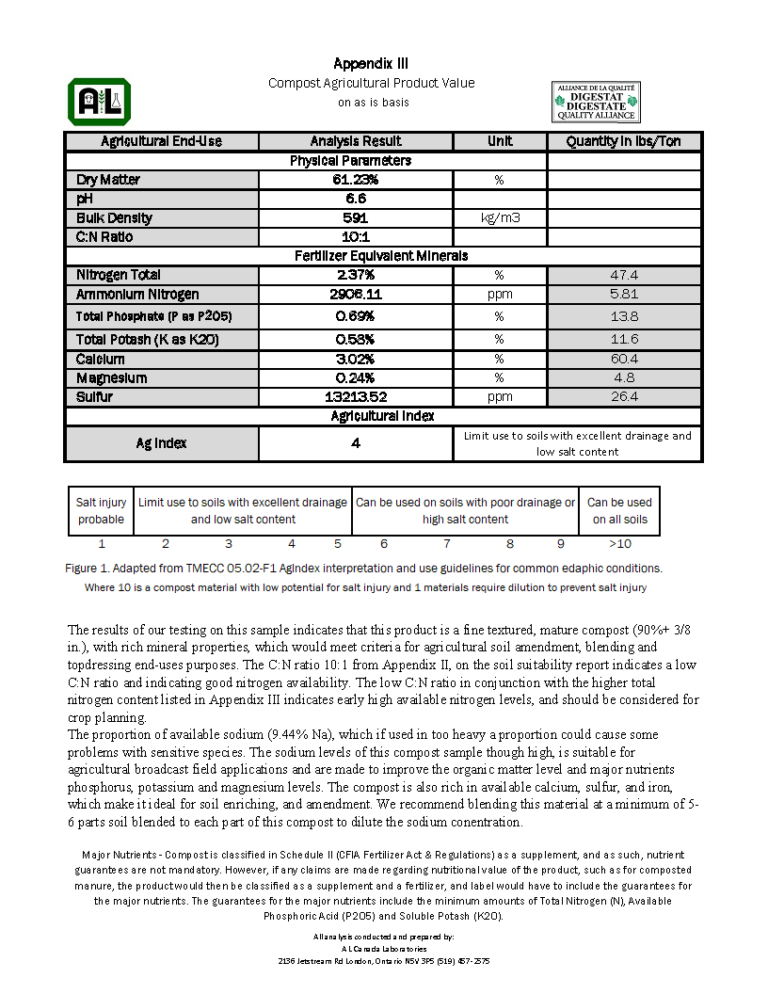
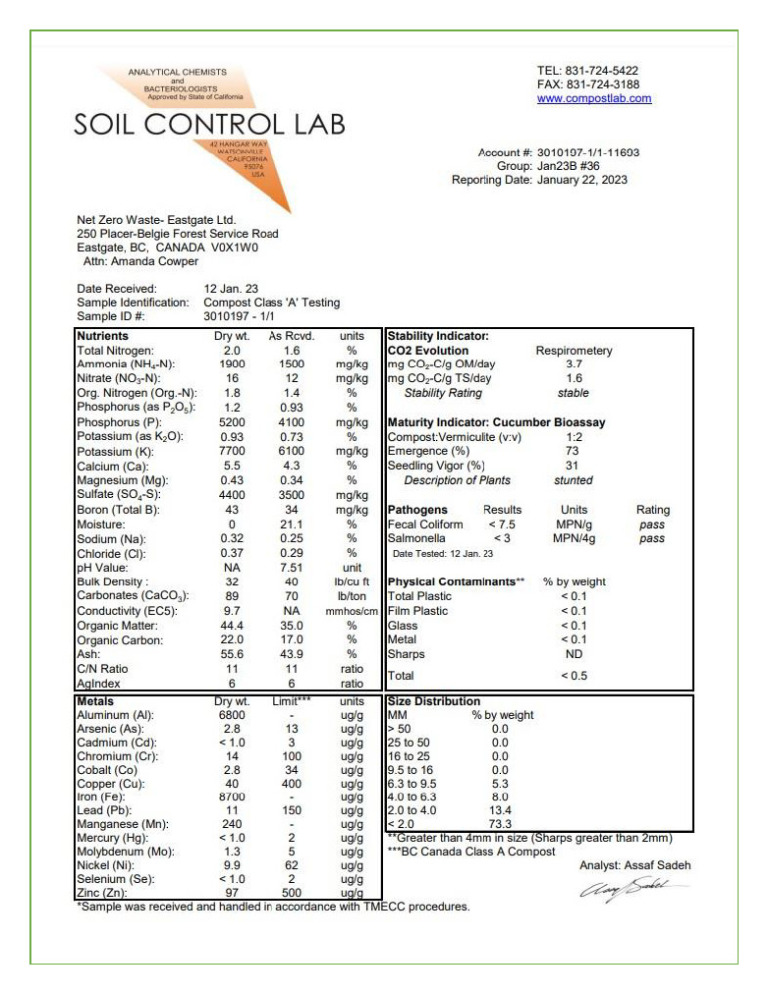
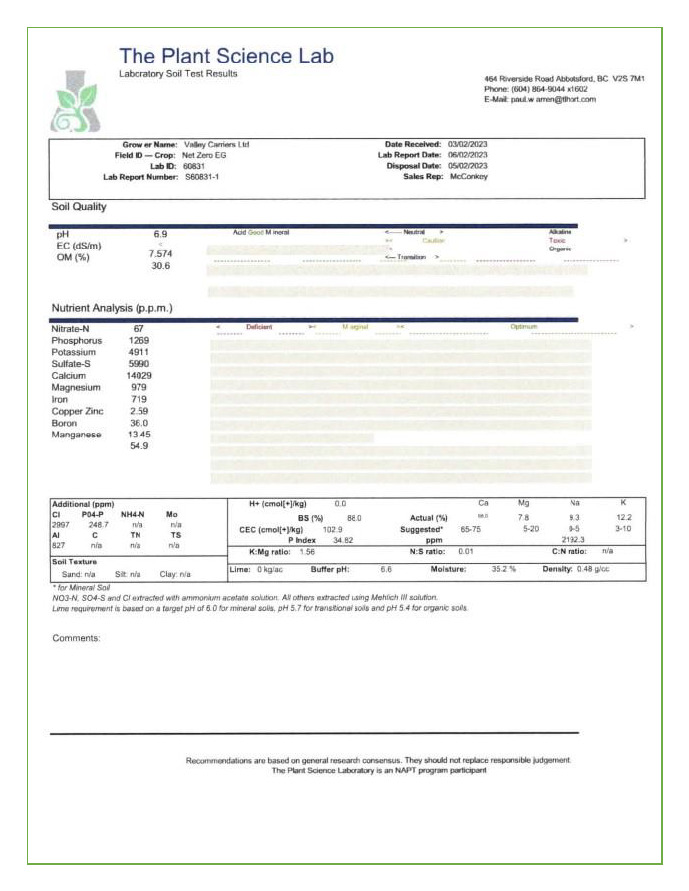
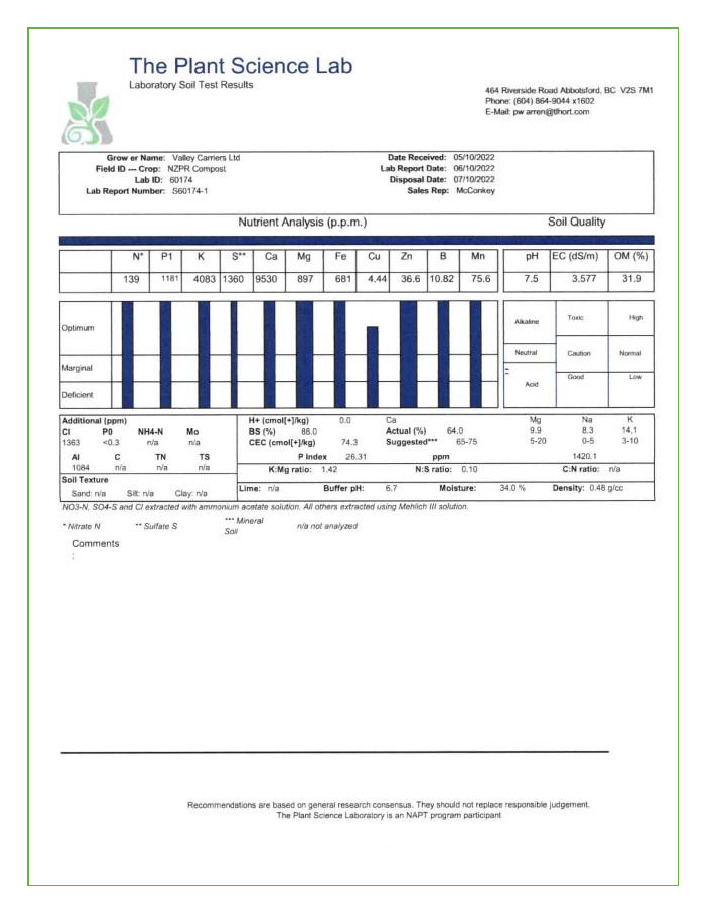
For more info:
[email protected]
604-987-1493